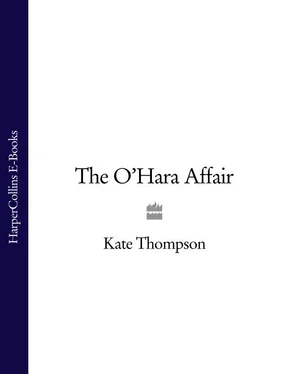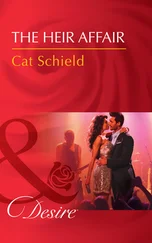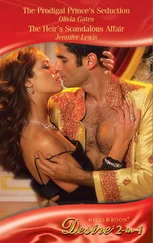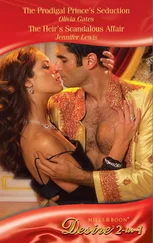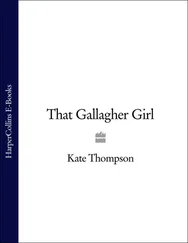Cake & wine sounds good, she texted back, adding for good measure.
Cake and wine did sound good. Especially wine. It had been busy in the shop today: Fleur’s jaw was aching from all the smiling she’d been doing, and her feet were killing her. Her boutique specialized in non-mainstream labels sourced from all over Europe: from evening chic to skinny jeans, from beachwear to accessories, all Fleur’s stock was hand-picked and exclusive to her – and none of it was cheap. From October, when the tourist trade dropped off and the summer residences were boarded up, Fleur hibernated, opening the shop only at weekends. After today, when two overdue deliveries had arrived at the same time, Fleur was looking forward to hibernating already. She reached up a hand to pull off her gypsy wig, then decided against it. It would give Daisy something to laugh at, and she loved to hear her niece laugh.
Tossing her shawl on the bed, Fleur negotiated the spiral staircase that led down to her living area. Since the demise of her little dog Babette, Fleur had taken the brave step of redecorating. She had painted the walls in Farrow & Ball Wimborne White, had the floorboards sanded and lime washed, and her furniture reupholstered in pale damask. Cobwebby lace was draped around the windows, a pair of alabaster angels stood sentinel on either side of the fireplace, and a chandelier scintillated overhead. All eight of her dining chairs were overlaid with nubbly linen slip covers, and her chaise longue was piled with tasselled white cushions. Fleur’s room was all white for a reason. She had sworn that she would never get another dog, because the pain she felt when Babette had died had been so unendurable she never wanted to go through anything like it again. And what better way to resist the allure of that puppy in the pet shop window or the sad eyes of a rescue dog in an ISPCA ad than by creating a pristine environment – one that would not welcome muddy paws or moulting hairs.
The only splashes of colour in the living space were courtesy of the artwork on the walls – much of which was by Río. Most of Río’s paintings were seascapes in vibrant oils, but the one that stood out was a portrait that had been painted some twenty years earlier. It depicted Fleur sitting back in her chair at the end of her long dining table, a glass of Bordeaux in front of her, a Gauloise between elegant fingers (she had stopped smoking two years later, and still missed it sometimes). Her hair was twisted into a loose chignon, and she was toying idly with a tendril that had escaped. Her attention was focused on someone to her right, someone with whom she was clearly rather coquettishly engaged. In truth, the painting depicted Fleur in full-on flirtatious mode, one eyebrow raised like a circumflex, mouth in a provocative pout, eyes agleam with intention. Fleur loved it.
Moving into the kitchen – where the aroma of last night’s ragout still lingered – Fleur set a tray with plates, napkins, glasses and a wine cooler. She was just about to carry it through to the deck, when the door bell rang. ‘Come on up, Daisy-Belle,’ she purred into the intercom. ‘I’m on the deck.’
Fleur’s deck overlooked the Lissamore marina, and was perfect for spying on the comings and goings of boats and boatmen. Corban had a pleasure craft berthed there, but so far this summer he’d had few opportunities to use it, as he’d been stuck in Dublin on business. When Río had asked Fleur to describe her lover, Fleur had laughingly called him her very own Mr Big.
Corban was the latest in a fairly long line of amours : Fleur was most certainly not the marrying kind. She’d tried it once when, aged nineteen, she had fallen in love with a beautiful Irish boy who was studying at the Sorbonne in Paris. Fleur remembered that epoch only dimly, as one might remember scenes from an art house movie viewed long ago through rose-tinted glasses: picnic lunches by the Seine, reading the poems of Emily Dickinson and Sylvia Plath in translation; strolls through the narrow winding streets of the Latin Quarter; rough wine and rougher cigarettes in cheap café bars; stolen hours in his bed when the concierge was napping; visit after visit to museums and galleries, and hour after hour of gazing into each other’s eyes, slack with desire and limp with adoration. And when Tom asked her to come with him to Ireland, she had said – breathless as Molly Bloom – ‘Yes, yes! I will, yes!’
They had married in the registry office in Dublin, and for a year she was pleased to receive letters as Mrs Thomas O’Farrell. Thereafter, following her separation and subsequent divorce, she trashed any correspondence addressed to ‘Mrs Thomas’, ‘Mrs Tom’ or ‘Mrs T. O’Farrell’. She would never be ‘Mrs Tom, Dick or Harry’ for any man. She was Fleur – Fleur Thérèse Odette O’Farrell (she’d retained the ‘O’Farrell’ because no one in Ireland could pronounce her real surname, which was de Saint-Euverte). And Tom? Tom had gone off to Canada with a Mountie. She hadn’t seen him since.
‘Hel lo ! What in God’s name are you wearing?’ Fleur turned to see Daisy framed in the French windows, regarding her with a curious expression.
‘It’s my outfit for the village festival. Ta-ra!’ Fleur held her skirts out and attempted a Flamenco-style twirl. ‘I am the fortune-teller. What do you think? Smoking, ain’t it?’
‘Mystic Meg, eat your heart out,’ replied Daisy, strolling across to the table and dumping a carrier bag on it. ‘Let me take a photograph.’ Holding up her iPhone, she adopted the exaggerated stance of a pro photographer, and segued into the usual clichéd directive: Lovely! Chin a little higher! Drop your shoulder!
Click, click, click went Daisy’s camera, while Fleur twirled some more and hummed a little Bizet, and then Daisy slid her phone back into her bag and kissed her aunt on both cheeks. ‘How did you get roped into being the fortune-teller?’ she asked. ‘I thought that was normally Río’s gig.’
‘I’ll tell you later. I want to hear all your news first. Sit down and give me the wine and the cake.’ Daisy took a bottle of wine and a cake-box from the carrier bag, and Fleur reached for the corkscrew. ‘Have you seen sense and ditched that bad boy?’ she asked, stripping foil from the neck of the bottle.
‘Yes. You’ll be glad to know the bad boy’s ancient history, Flirty. But I’ve got some even better news.’
‘Oh? What’s that?’
‘Guess.’
‘You have landed a new contract?’
‘No.’
‘You’ve been asked to be a judge on Ireland’s Next Top Model ?’
‘Yes, I have actually. But that’s not the good news.’
‘You have a photo-shoot with Testino.’
‘In my dreams.’
Fleur poured wine into the glasses and handed one to Daisy. ‘A Vogue cover?’
‘Get real!’
‘OK. I give up,’ said Fleur.
‘That’s it! That’s exactly what I’ve done!’
‘What are you talking about?’
‘I’ve given up modelling.’
Fleur set her glass down. ‘I am guessing this isn’t a joke.’
‘No joke. This is real, I promise.’
‘But why, Daisy?’
‘I’ve fallen out of love with it. It’s that simple. I’m going to Africa to do voluntary work.’
Fleur took a sip of wine, and gave her niece a look of assessment. It was clear from Daisy’s expression that she was resolute. Daisy was a Capricorn, and once a Capricorn decides upon a course of action, Fleur knew, there was no turning back.
‘Well. Good for you. Was it a tough decision?’
Daisy shook her head. ‘No. My agent asked if I needed twenty-four hours to think about it, and I said “Yes…” and then “ No! ” practically simultaneously. I really didn’t need to think twice. I’ve been miserable in this job for a long time.’
Читать дальше
